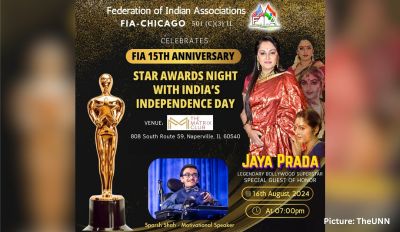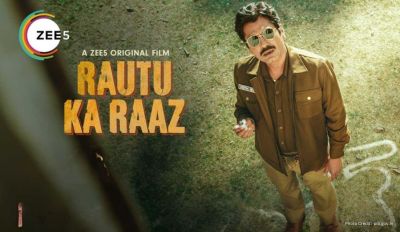A lawyer sits opposite his client, delivering a grave ultimatum.
“You have one month to secure a co-signer for your visa,” he solemnly states. “Otherwise, you’ll be forced to depart from the United States.”
Such dismal scenes are commonplace at Khalil Immigration Law, where individuals facing defeat often seem to vanish into thin air. Even the office’s decor fails to inspire confidence, with a plaque offering a tepid reassurance: “We’ll do what we can!”
This surreal setting is just one of many eccentric locales viewers encounter in the newly released film “Problemista.” The story follows Alejandro, portrayed by writer-director Julio Torres, as he embarks on a frantic journey to remain in the US and fulfill his aspirations.
Early in the movie, we witness a pivotal moment between Alejandro and his lawyer, Mr. Khalil, played by Laith Nakli. Faced with impending deadlines, Khalil urges Alejandro to find a solution promptly. Could a newfound acquaintance serve as his sponsor?
“I mean, we’ll see,” Alejandro responds with a shrug.
Rather than proposing a groundbreaking legal strategy, Khalil’s reaction is unexpectedly lighthearted. “We’ll see,” he echoes, envisioning the phrase adorning a new plaque in the waiting room. “That’s a much better motto for us.”
Such humorous interludes pepper “Problemista,” a film that underscores the uncertainties inherent in the US immigration system and the surreal hurdles confronting those who navigate it.
Despite the absurdities, Alejandro persists against the odds, contending with the erratic behavior of his employer, art critic Elizabeth Asencio, portrayed by Tilda Swinton, whose default mode seems to be confrontation.
For Torres, the film is both a work of fiction and a reflection of personal experiences. Having migrated from El Salvador to pursue his education in the US, Torres empathizes deeply with Alejandro’s struggles. Recalling his own anxiety while transitioning from a student visa to a work visa, he admits, “I would wake up and my heart was already racing.”
Similarly, Nakli, who portrays the well-intentioned but ineffective immigration lawyer in “Problemista,” finds parallels between his own journey and Alejandro’s plight. Despite achieving success in his acting career, Nakli’s past legal troubles continue to cast a shadow over his life.
In 1998, Nakli, originally from the UK and a former bodybuilding champion, faced federal charges related to conspiracy to possess and distribute controlled substances. Reflecting on his remorse, he expressed profound regret for betraying the trust of the country that welcomed him.
Transitioning from bodybuilding to acting, Nakli found himself haunted by his past, yet hesitant to share his story due to shame. Despite the closure of his deportation case under the Obama administration, Nakli remains vigilant, aware that any misstep could reignite legal proceedings.
The perpetual uncertainty weighs heavily on Nakli, reminiscent of the tense atmosphere depicted in “Problemista,” where waiting room scenes evoke a palpable sense of dread.
Nakli’s decision to pursue a presidential pardon underscores the ironic juxtaposition of his role as an immigration lawyer in the film. Torres believes Nakli’s experience highlights the unforgiving nature of the immigration system, which disproportionately affects immigrants like Nakli.
“Problemista” offers a satirical lens through which to examine the labyrinthine bureaucracy of immigration. Torres drew inspiration from his own struggles, recalling the absurdities of navigating the visa process through unconventional means, such as the gig economy and online platforms like Craigslist.
The film’s surreal elements mirror the Kafkaesque realities of immigration, where legal pathways are convoluted, and success often hinges on bending the rules. Despite the challenges, Torres maintains that “Problemista” isn’t merely an exposé but a testament to resilience in the face of adversity.
Both Alejandro and Torres embody the spirit of a “problemista” – individuals who thrive amidst challenges and find creative solutions to navigate life’s complexities.
As Nakli awaits a decision on his pardon application, he remains hopeful for a fresh start. Recognizing the transformative power of second chances, he embraces the possibility of redemption and a renewed sense of belonging in the country he calls home.
While uncertainties loom, Nakli’s resilience echoes the hopeful message of “Problemista,” where perseverance and resourcefulness ultimately triumph over adversity. Unlike the ghostly figures of rejected immigrants depicted in the film, Nakli’s story is one of resilience and the enduring pursuit of a brighter future.











